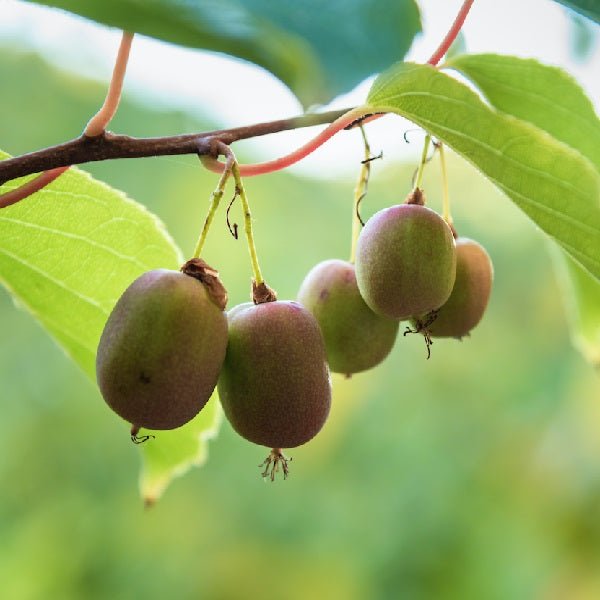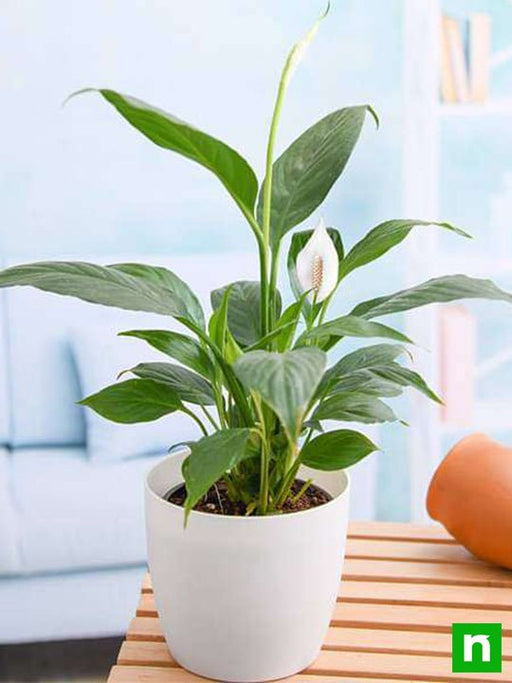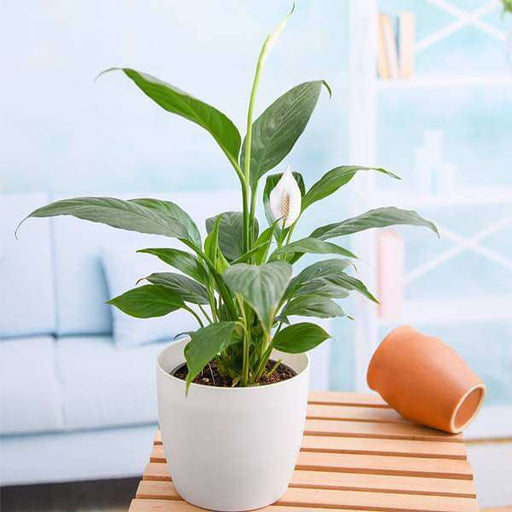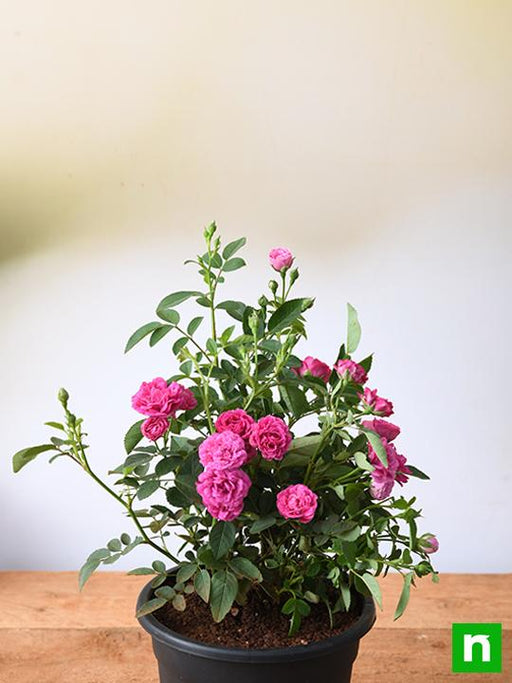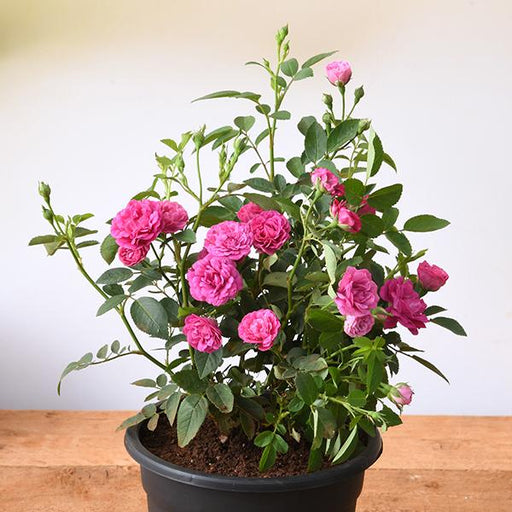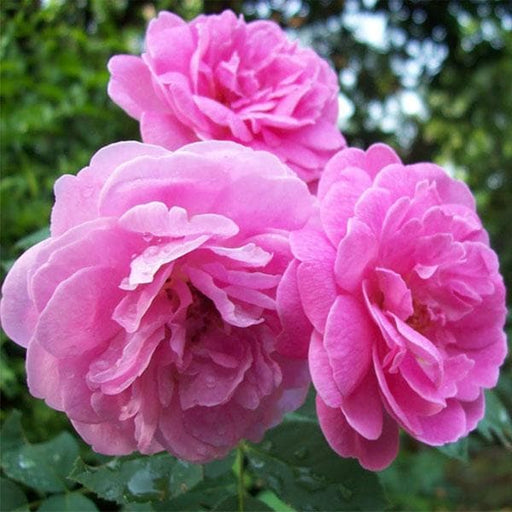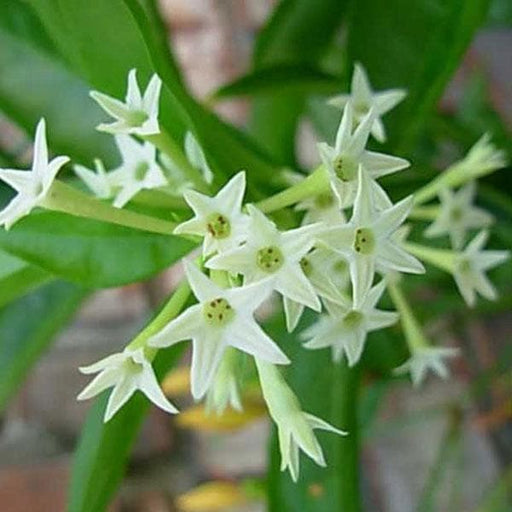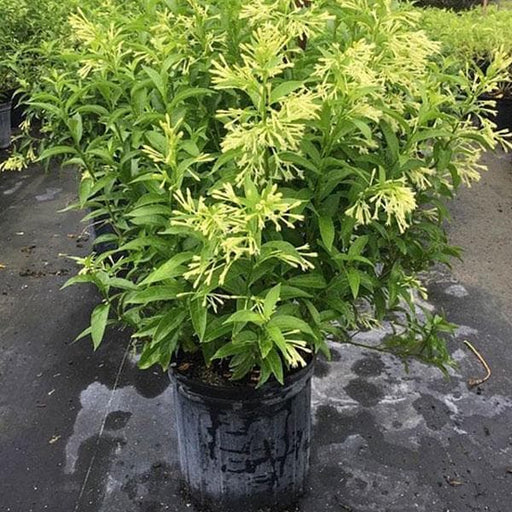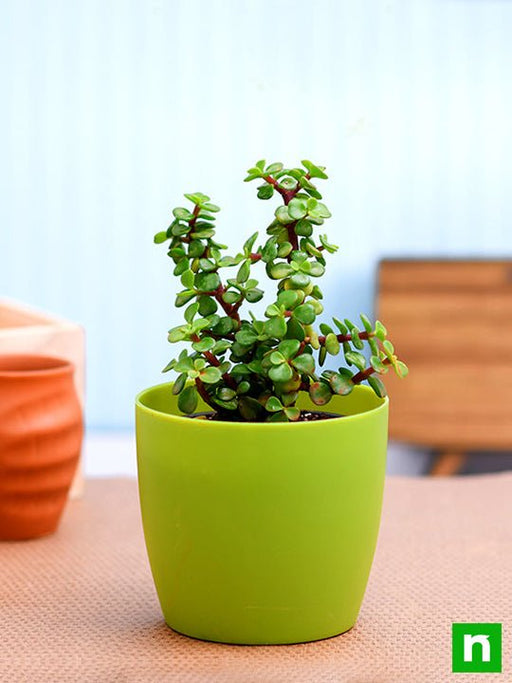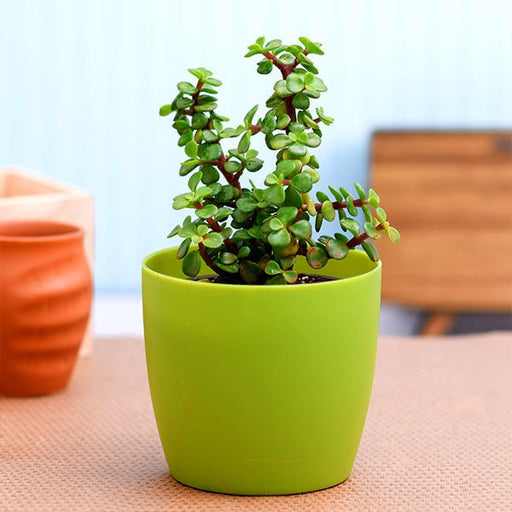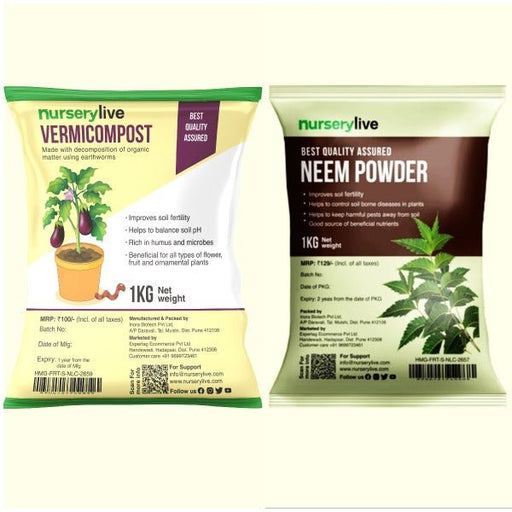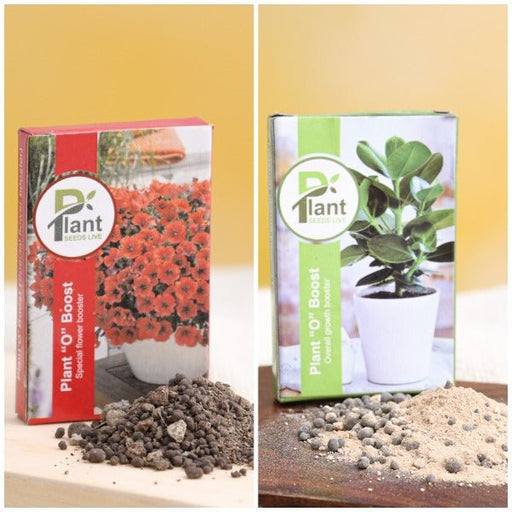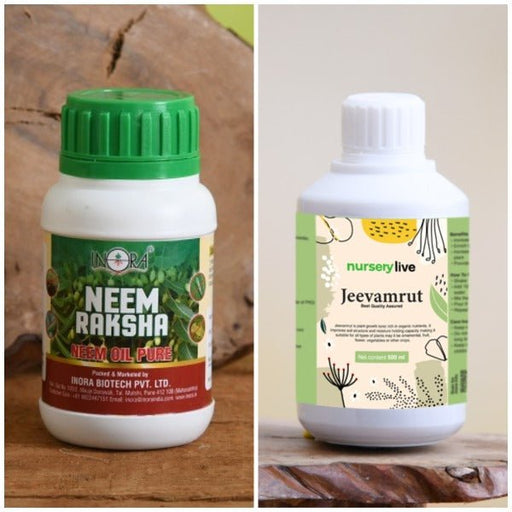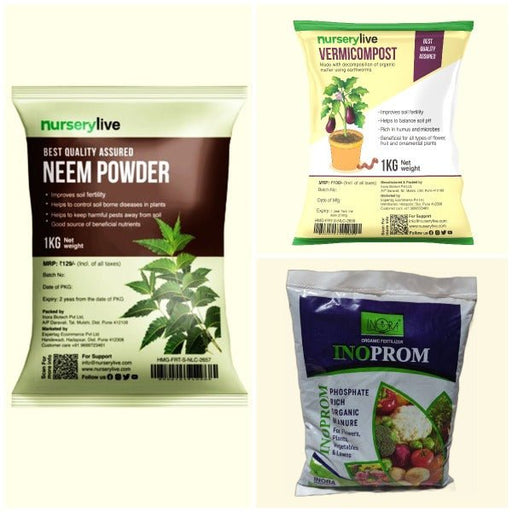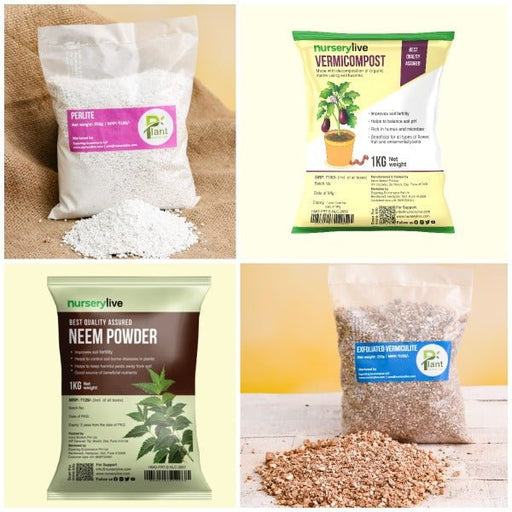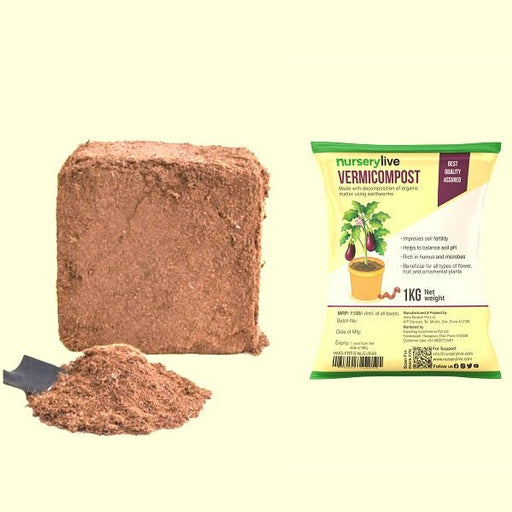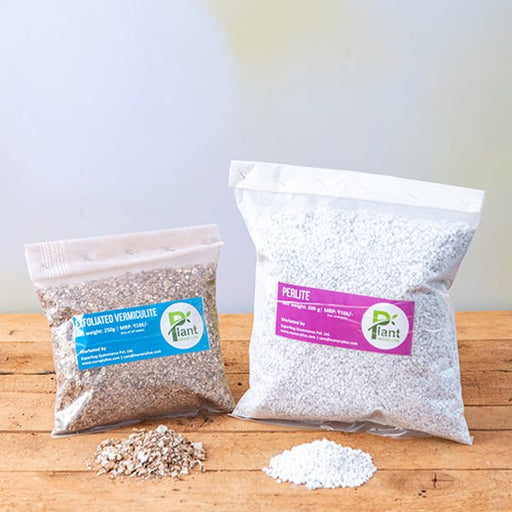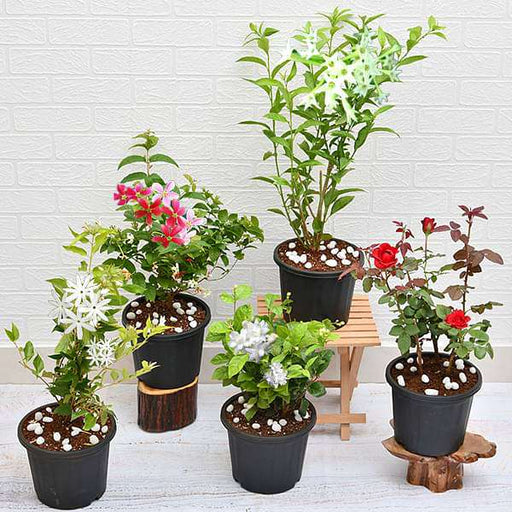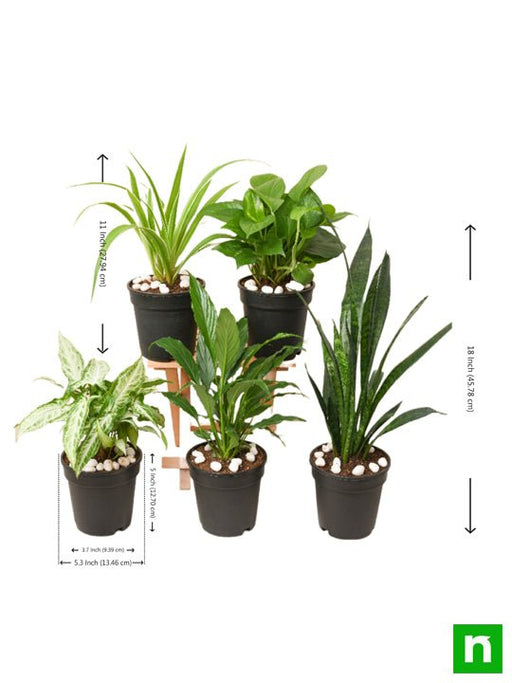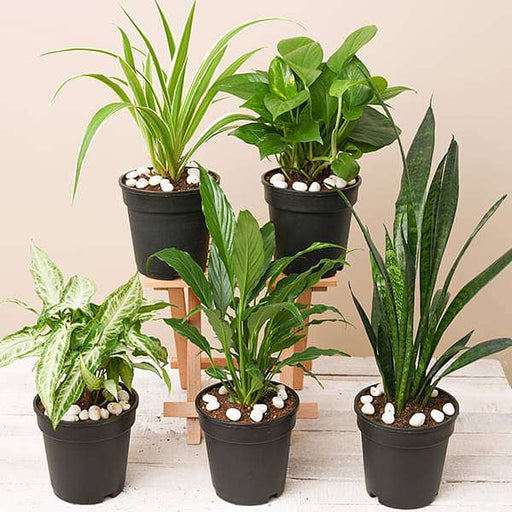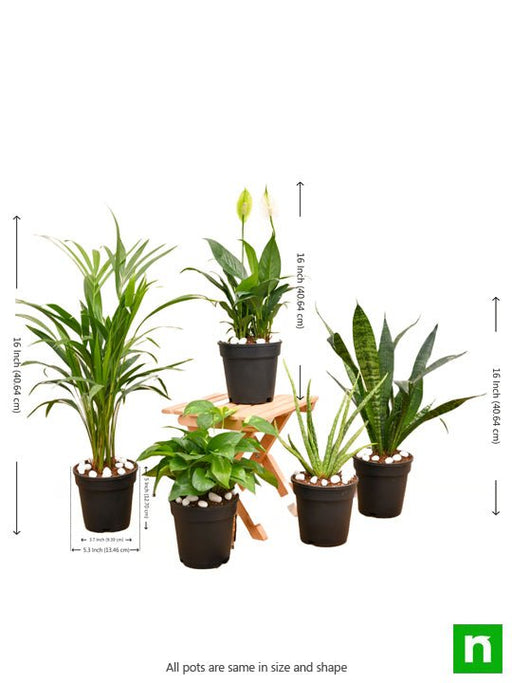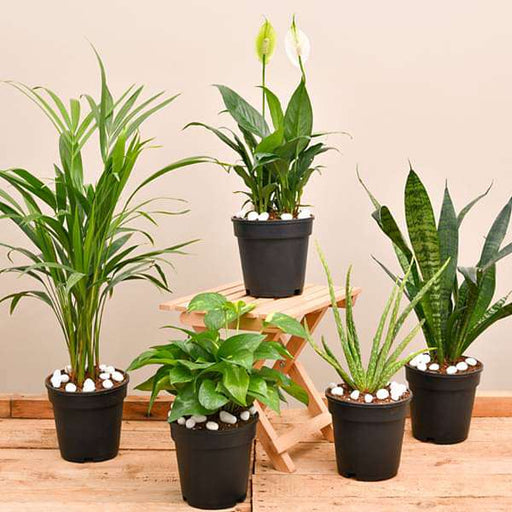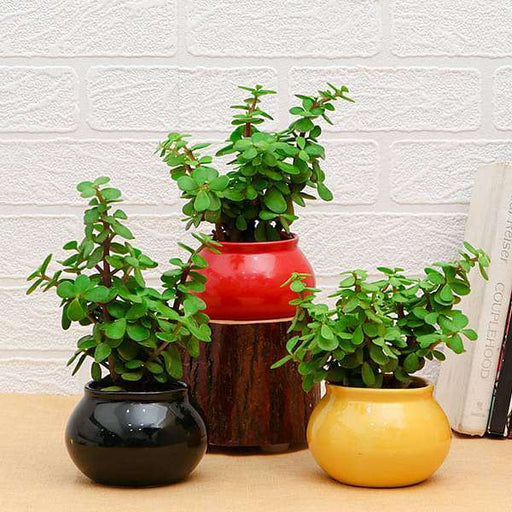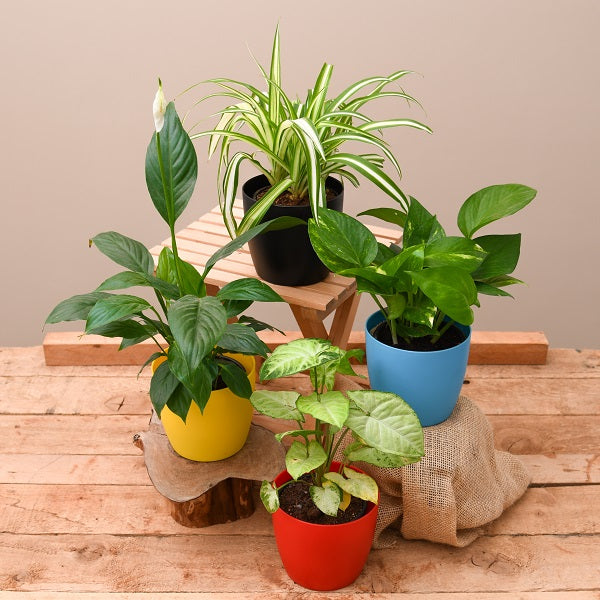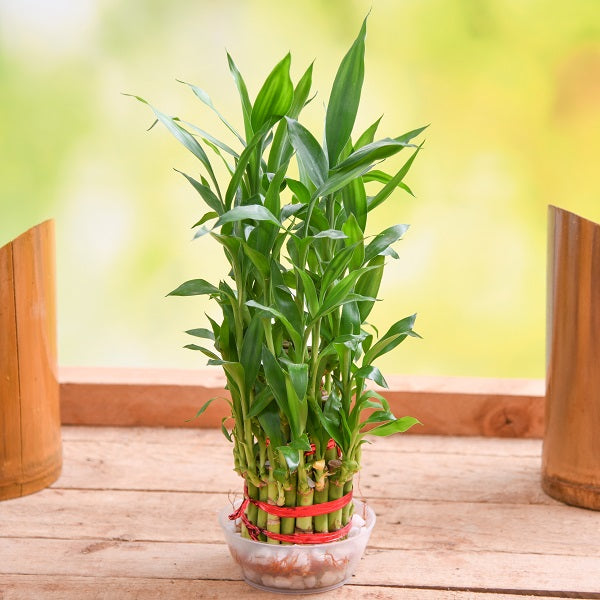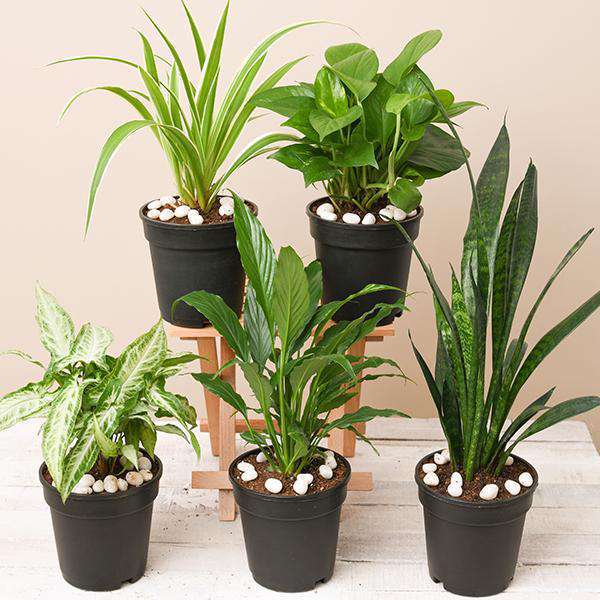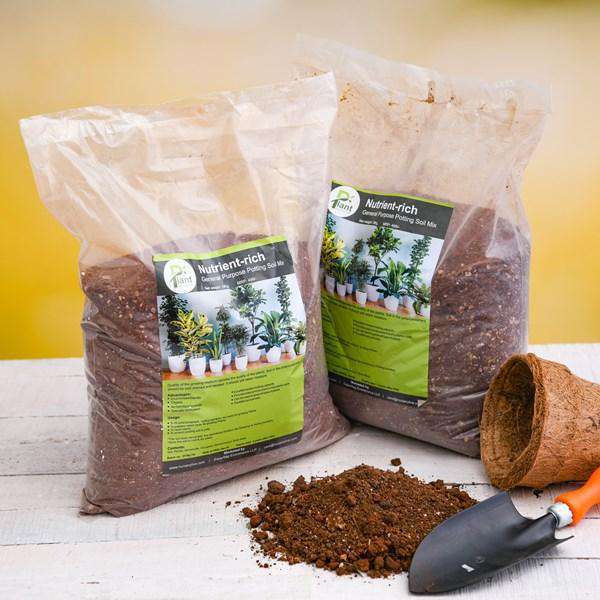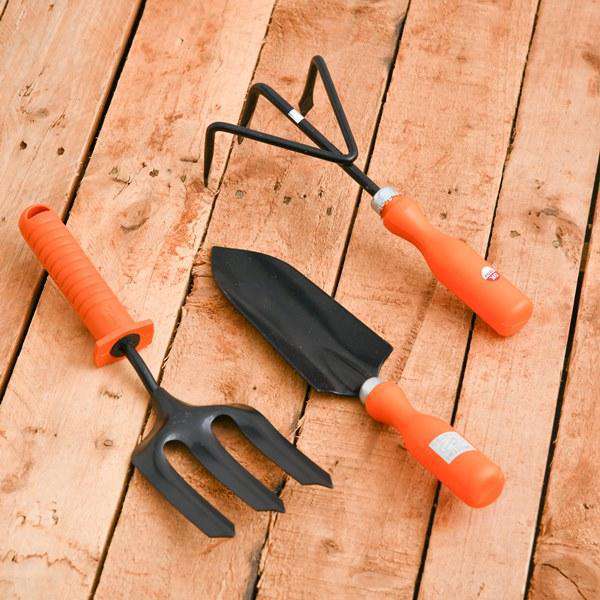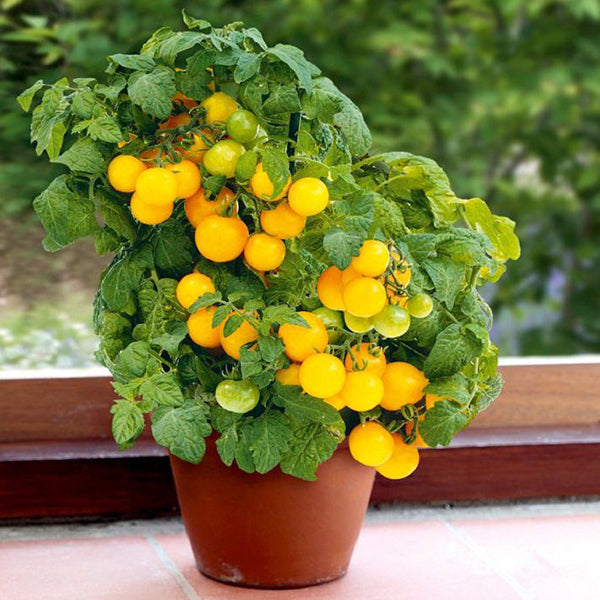Description
Introducing our Kiwi Plant - the perfect addition to your home garden! This remarkable vine, native to New Zealand, is now at your fingertips, ready to thrive in your backyard or on your balcony. With its vibrant green foliage and the promise of delicious, nutrient-rich kiwi fruits, this hardy plant brings both beauty and bounty to your space.
Whether you're an experienced gardener or a newbie, our Kiwi Plant is easy to cultivate, and its vigorous growth will soon reward you with luscious, homegrown kiwis. Create your own little slice of paradise with this exceptional Kiwi Plant – a delightful and fruitful addition to any garden. Order yours today and embark on a flavorful journey right from your own home.
Plant Specifications
| Plant Height |
24 inch (61 cm) |
| Plant Spread |
5 inch (13 cm) |
*above specification are indicative only. actual dimensions may vary by +-10%
| Common Name |
Kiwi
|
| Maximum Reachable Height |
Up to 20-25 feet |
| Difficulty Level |
Easy to grow |
Planting and care
Selecting the Right Location:
Choose a sunny spot in your garden that receives at least 6-8 hours of direct sunlight daily. Kiwi plants thrive in well-drained soil with good air circulation.
Planting:
Prepare the soil by adding organic matter like compost or well-rotted manure.
Plant kiwi vines in early spring or late fall when they are dormant.
Dig a hole twice as wide and deep as the root ball of the plant.
Place the plant in the hole and backfill with soil, making sure it's at the same level as it was in the container.
Water thoroughly after planting.
Support and Training:
Kiwi plants are vigorous climbers and need a sturdy support system. Provide a trellis or pergola for the vines to grow on. Train the vines to grow along the support structure by pruning and tying them as they grow. Pruning is essential to encourage fruit production and maintain manageable growth.
Watering and Fertilizing:
Kiwi plants require consistent moisture, especially during the growing season. Ensure the soil stays consistently moist, but not waterlogged.
Fertilize kiwi plants with a balanced, slow-release fertilizer in early spring and again in late spring or early summer. Follow the manufacturer's recommendations for application rates.
Make sure your plants are getting enough amount of bright indirect sunlight, No need to water them daily, water them when the upper layer of the soil feels dry to touch. avoid overwatering. so drainage is important to prevent rot. Check the drainage hole to allow excess water to escape.
| Sunlight |
Full sun |
| Watering |
Moderately |
| Soil |
Rich, deep and somewhat porous soil. |
| Temperature |
25 to 35 degree C |
| Fertilizer |
Apply any organic fertilizer. |
| Harvest Season |
Winter
|
Kiwi Fruit special feature
Kiwi fruit is renowned for its exceptionally high vitamin C content, packing more than most other fruits.
Kiwi Fruit uses
Dietary Consumption: Kiwi fruit is a delicious and nutritious addition to your diet. You can eat it fresh, add it to fruit salads, or blend it into smoothies for a sweet and tangy flavor.
Vitamin C Boost: Kiwi is an excellent source of vitamin C, which is known to support the immune system and promote healthy skin. Consuming kiwi regularly can help boost your daily vitamin C intake.
Digestive Health: Kiwi contains enzymes like actinidin, which can aid in digestion. It's often used to tenderize meat or as a natural meat marinade.
Face Masks and Skincare: Kiwi pulp is sometimes used in homemade face masks and skincare products due to its high vitamin C content and antioxidant properties, which can help brighten and rejuvenate the skin.
Natural Meat Tenderizer: The enzymes in kiwi, specifically actinidin, make it an excellent natural meat tenderizer. You can use kiwi puree or slices to marinate tough cuts of meat, making them more tender and flavorful. However, be cautious with marination time as kiwi can over-tenderize meat if left for too long.
Kiwi plant care
Taking care of your kiwi plants is essential for their healthy growth. From providing adequate sunlight to regular watering, these little divas demand attention. Don't forget to pamper them with well-draining soil and occasional fertilization. With a little TLC, your kiwi plants will thrive and reward you with delicious fruits.
Kiwi plant diseases
Even kiwi plants have their share of woes. They might encounter pests like aphids or diseases like root rot. But fear not, brave gardener! Armed with proper knowledge and preventive measures, you can combat these pesky invaders. Remember, a healthy kiwi plant is a happy kiwi plant.
Kiwi plant pruning
Time for a kiwi makeover! Pruning helps control the size and shape of your kiwi plants while promoting better fruit production. Grab your gardening shears and trim away the excess foliage. Just be careful not to go overboard and leave your kiwi plants looking like a bad haircut!
Kiwi plant trellis
Kiwi plants love to climb, and a trellis is their best friend. Building a sturdy trellis will provide the necessary support for these ambitious climbers. Choose a design that complements your garden and get ready to witness kiwi plants reaching for the stars.
Kiwi plant varieties
Did you know there are different kiwi plant varieties? From the classic green-fleshed Hayward to the golden-fleshed Soreli, the kiwi world is full of options. Each variety offers a unique flavor and appearance, adding a colorful twist to your garden and taste buds.
Kiwi plant pollination
Kiwi plants can be a bit shy when it comes to pollination. To ensure a fruitful harvest, you'll need a male and female plant for cross-pollination. Bees and other pollinators play a crucial role in this process. So, attract these fuzzy helpers to your garden and watch the magic happen.
Kiwi plant nutrition
Who said kiwi plants don't need their vitamins? Just like us, they require proper nutrition to stay healthy. Feed them with a balanced fertilizer to supply essential nutrients. A well-fed kiwi plant is bound to give you juicier, tastier fruits.
Kiwi plant frost protection
When the chilly winds blow, kiwi plants need protection. Shield them from frost by covering them with a frost cloth or using a protective layer of mulch. Show these delicate darlings some love, and they'll brave the cold and reward you with their sweet treasures.
Kiwi plant propagation
Why stop at one kiwi plant when you can have more? Propagation allows you to expand your kiwi plant family. You can try techniques like layering, grafting, or even growing them from seeds. It's a kiwi family reunion waiting to happen!
Kiwi plant training
Kiwi plants can be a little wild and unruly. But with proper training, you can tame their viney nature. Encourage them to grow in the right direction by gently guiding their vines. Think of yourself as a kiwi whisperer, bringing order to the kiwi chaos.
Kiwi plant benefits
Did you know kiwi plants offer more than just tasty fruits? These green wonders are packed with vitamins, antioxidants, and fiber. So, when you indulge in a kiwi, you're not only satisfying your taste buds but also nourishing your body. It's a win-win situation!
Kiwi plant container gardening
No garden? No problem! Kiwi plants can be grown in containers, bringing the joy of fresh fruits to your balcony or patio. Choose a large container with good drainage, fill it with nutrient-rich soil, and let your kiwi plant thrive in its cozy home. Just remember to provide proper support for its climbing nature and enjoy the sight of a mini kiwi vine in your urban oasis.
Kiwi plant sunlight requirements
Kiwi plants are sun seekers, but they appreciate a little shade too. They thrive in full sun, so find a sunny spot in your garden where they can soak up those rays. However, if you live in a scorching climate, some afternoon shade might be beneficial to prevent sunburned leaves. Strike the perfect balance, and your kiwi plants will be sun-kissed and happy.
Kiwi plant harvesting tips
The moment of truth has arrived – it's time to harvest your kiwi fruits! When the fruits are plump and firm, gently twist and detach them from the vine. Avoid pulling or yanking, as you don't want to harm the delicate branches. Give them a little taste test, and if they're sweet and flavorful, congratulations, you've mastered the art of kiwi harvesting!
Kiwi plant companion planting
Kiwi plants love having good company in the garden. Consider companion planting with other compatible crops like strawberries or herbs. These companions not only provide a harmonious environment but can also deter pests and attract beneficial insects. It's like throwing a garden party where everyone gets along!
Kiwi plant water requirements
Hydration is key for happy kiwi plants. They enjoy consistently moist soil, so regular watering is essential, especially during dry spells. However, be cautious not to overwater, as soggy soil can lead to root rot. Strike the right balance, keep the soil moist but not waterlogged, and your kiwi plants will drink up the goodness.
Kiwi plant trellis design ideas
When it comes to trellis designs for your kiwi plants, the options are endless. Get creative and build a trellis that reflects your personal style. From traditional wooden structures to modern wire frameworks, choose a design that adds charm and character to your garden. Your kiwi plants will happily climb and show off their unique support system.
Kiwi plant seasonal care
As the seasons change, so do the needs of your kiwi plants. During winter, protect them from freezing temperatures and provide insulation. In spring, focus on pruning and fertilizing to prepare for a fruitful season. Summer calls for ample watering and pest management. And in autumn, relish the bountiful harvest and start planning for the next cycle. Adjust your care routine accordingly, and your kiwi plants will appreciate the seasonal pampering.
Kiwi plant trellis maintenance
Maintaining your kiwi plant trellis is essential for its longevity and functionality. Regularly inspect the structure for any damage or signs of weakness. Repair or replace any broken parts to ensure it can withstand the weight of the climbing vines. A well-maintained trellis will keep your kiwi plants happy and safe as they reach new heights.
Kiwi plant culinary uses
Kiwi fruits aren't just for eating on their own; they can add a delightful touch to various dishes. From refreshing fruit salads to tangy desserts and even savory recipes like kiwi salsa, these versatile fruits bring a burst of flavor and a vibrant pop of color to your culinary creations. Get experimental in the kitchen and let your taste buds dance to the kiwi beat.
